Mother Teresa declared saint by Pope Francis at Vatican ceremony
- 57 minutes ago
- Europe
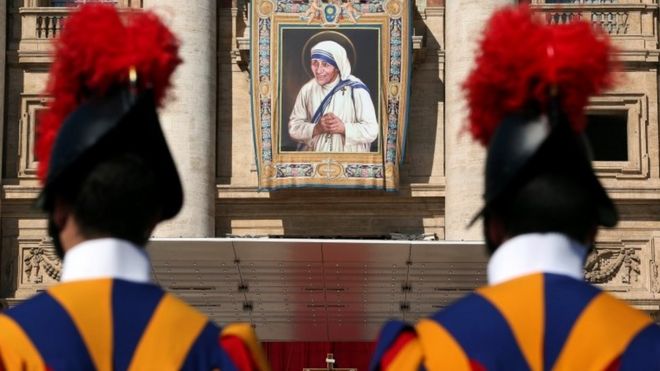 REUTERS
REUTERS
Mother Teresa, revered for her work with the poor in India, has been proclaimed a saint by Pope Francis in a ceremony at the Vatican.
Tens of thousands of pilgrims had flocked to St Peter's Square for the Mass and canonisation.
Two miraculous cures of the sick after Mother Teresa's death in 1997 have been attributed to her intercession.
In India, a special Mass was celebrated at the Missionaries of Charity, the order she founded in Kolkata.
Many pilgrims arrived at the Vatican before dawn on Sunday to get a good spot among the masses for the ceremony.
Cardinal Angelo Amato read a brief biography of Mother Teresa's work, then asked the Pope to canonise her in the name of the Church.
Pope Francis responded: "After due deliberation and frequent prayer for divine assistance, and having sought the counsel of many of our brother bishops, we declare and define Blessed Teresa of Calcutta to be a saint and we enrol her among the saints, decreeing that she is to be venerated as such by the whole Church."
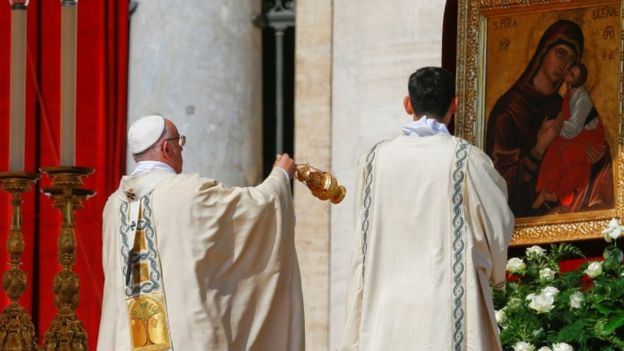 REUTERS
REUTERS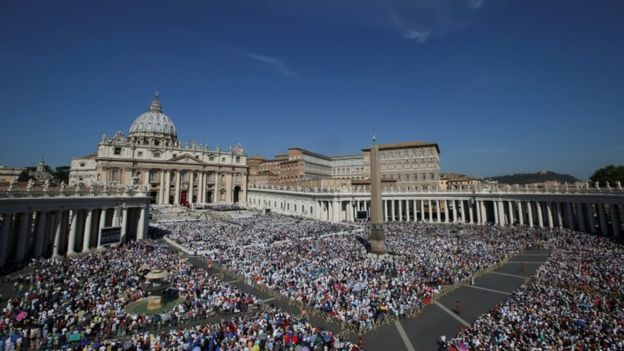 REUTERS
REUTERS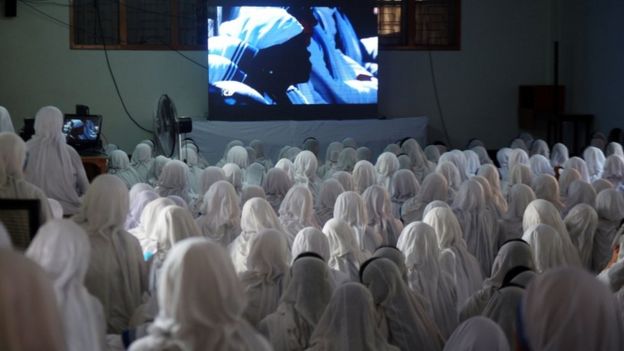 AFP
AFP
Hundreds of Missionaries of Charity sisters attended the event, along with 13 heads of state or government.
Some 1,500 homeless people across Italy were also brought to Rome in buses to be given seats of honour at the celebration - and then a pizza lunch served by 250 nuns and priests of the Sisters of Charity order.
One pilgrim, Charlotte Samba from Gabon, told Associated Press: "Her heart, she gave it to the world. Mercy, forgiveness, good works. It is the heart of a mother for the poor."
Large TV screens were set up at Mother House in Kolkata (Calcutta) for the Vatican ceremony.
Senior sister at the Mother House, Mary Lysa, said: "It's a day of rejoicing, a day of gratitude and a day of many, many blessings."
Worldwide acclaim
Mother Teresa founded a sisterhood that runs 19 homes, and won the Nobel Peace Prize.
But she was not without her critics, as some people noted a lack of hygiene in the hospitals run by her sisterhood, and said she accepted money from dictators for her charity work.
She died in 1997 - aged 87 - and was beatified in 2003, the first step to sainthood.
In 2002, the Vatican ruled that an Indian woman's stomach tumour had beenmiraculously cured after prayers to Mother Teresa.
Pope Francis cleared the way for sainthood last year when he recognised a second miracle attributed to her.
Her work complements Francis' vision of a Church that serves the underprivileged.
Her canonisation is a centrepiece of his Jubilee Year of Mercy.
Born in 1910 to ethnic Albanian parents, Agnese Gonxha Bojaxhiu grew up in what is now the Macedonian capital, Skopje, but was then part of the Ottoman Empire.
Aged 19, she joined the Irish order of Loreto and in 1929 was sent to India, where she taught at a school in Darjeeling under the name of Therese.
In 1946, she moved to Kolkata to help the destitute and, after a decade, set up a hospice and a home for abandoned children.
She founded the Missionaries of Charity in 1950. The sisterhood now has 4,500 nuns worldwide.
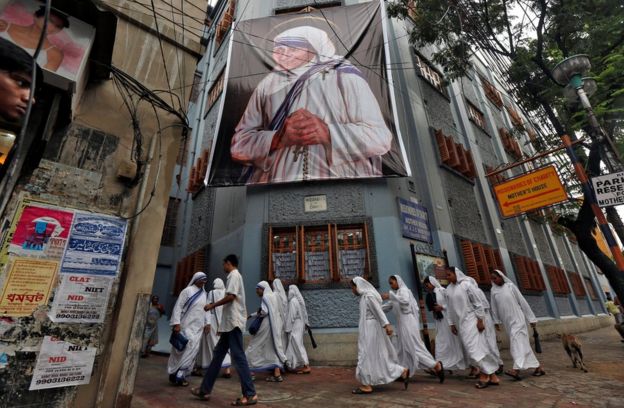 REUTERS
REUTERS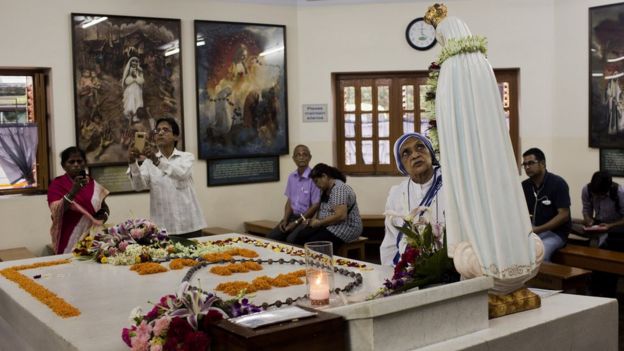 AP
AP
She achieved worldwide acclaim for her work in Kolkata's slums, but her critics accused her of pushing a hardline Catholicism, mixing with dictators and accepting funds from them for her charity.
It often takes decades for people to reach sainthood after their death, but beatification was rushed through by Pope John Paul II. Pope Francis was known to be keen to complete the process during the Church's Holy Year of Mercy, which runs to November 2016.
η εκκλησία τιμά δια της αποδοχής από τον κόσμο τους αγίους της. Θεία τύχη ο ταπεινός ΠΆΠΑς φραγκισκος παρών στην τελετή.
ReplyDelete